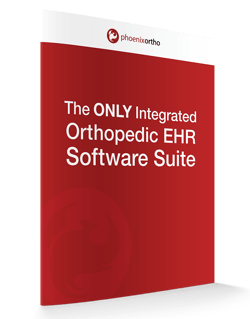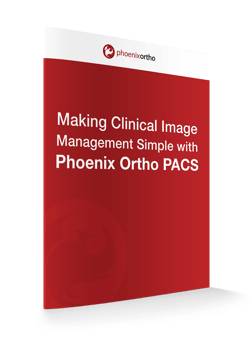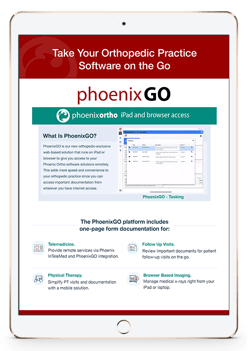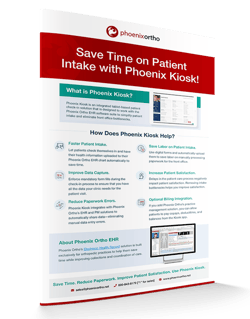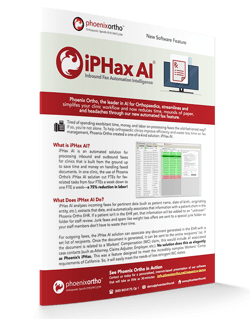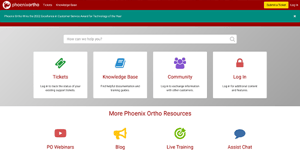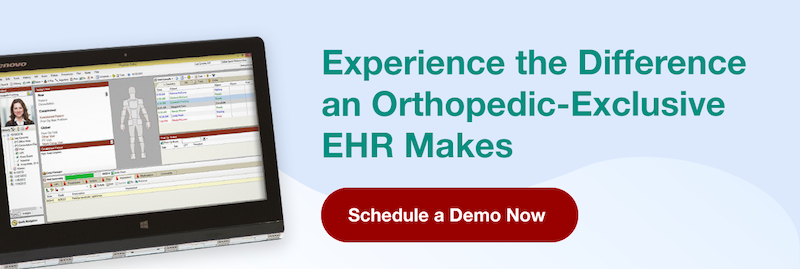As an orthopaedic clinic or another medical practice, integrating the right Electronic Health Records software (EHR software) into your operations makes a stark difference in your ability to manage records and patients. However, EHR implementation often can be cumbersome for many clinics if the process is not thoughtful, organized, methodical.
According to the American Medical Association (AMA), there are nine steps to a successful EHR implementation:
- Create an implementation team
- Configure the software
- Identify hardware needs
- Transfer data
- Optimize pre-launch workflows
- Consider the room layout
- Decide on the launch approach: “big bang” vs. incremental
- Develop procedures for when your EHR is down
- Initiate a training plan
Having the right resources and people in place for the EHR implementation process is vital. A thoughtful and intelligent EHR implementation project plan can not only get your practice up and running on the new software more quickly, but it also will help your office staff and providers adapt to the new system more easily.
What are some of the qualities to look for in an efficient EHR implementation process?
Components of an Intelligent EHR Implementation Process
An Organized and Streamlined Process for Easy EHR Implementation
The EHR Implementation process does not need to be a complicated or frustrating endeavor. With the right software, training, and guidance from an industry leader with set EHR implementation steps to follow, the EHR implementation process is simplified. The vendor should be able to provide a detailed breakdown of each step in the process to help you stay informed. This way, you know what to expect at each EHR implementation step.
Employee Training That Prepares Them to Use the System Effectively
After the initial EHR implementation process is complete, it’s critical to ensure that every employee continues to receive adequate training on the system. The importance of training in EHR implementation cannot be overstated. Not only does this help your employees understand the purpose of the system and how it works, but it also helps them become more comfortable using the system.
While continued training is essential after the initial EHR implementation process is complete, it’s more vital in advance of and during implementation. This is not to minimize the importance of follow-up training… Did you know that one of the differentiators with Phoenix Ortho is that we offer lifetime unlimited training for our clients at no extra charge? We even recommend an onsite follow-up visit from one of our trainers every 6-12 months to ensure clients are keeping up with proper workflow, new enhancements and features, etc.
We do not charge for the time during these follow-up visits; we just ask that the client pay travel costs.
One of our client administrators shares their insights after an onsite “tune-up”:
“Anna’s visit was very helpful. She was able to see our workflow. She was able to see errors as they were happening on our end and was able to fix a few issues…
We are very pleased to have had Anna with us. This is exactly the kind of service that will help us to remain a legacy customer as this was the best trouble shooting and fixing session that we have experienced with Phoenix Ortho. I am confident that the doctors will see the advantage to having her come back hopefully every six months.
Thank you for listening to our issues and sending Anna to rescue us. Also congratulations as you made an excellent find in hiring Anna.”
At Phoenix Ortho, we are also excited to share that we recently hired a “Client Account Manager” who will stay engaged with clients throughout the year to ensure that they are up to date on training and feature sets.
Support Before, During, and After the EHR Implementation Process
As with any new health information technology (HIT) solution, it’s critical to have support readily available to help you during and after the EHR implementation process is complete. Support can come in multiple forms, including software updates, technical support, news and updates about the development of industry tools, and information about healthcare regulatory compliance. Having the right EHR software vendor to guide you through the EHR implementation makes the process as seamless and efficient as possible.
Phoenix Ortho serves as the industry’s gold standard for orthopaedic-specific EHR. We are the only software company to offer a comprehensive suite of products developed specifically for orthopaedic practices. Our highly-trained team of in-house support and training personnel is here to provide ongoing support—even long after the implementation process has ended. This way, you can focus on what matters most: growing your practice and serving your patients.
Our EHR implementation steps are the following:
- We assign an EHR Implementation Specialist to you.
- Administrative and Super Users within your practice are identified and trained to learn the system inside out, and to act is your in-house resource for solution and workflow questions in the future.
- Your assigned implementation specialist continues to serve as your main support system throughout the process to ensure the software is up and running on schedule.
- Our implementation specialist visits your office to go over the EHR implementation steps and answer any final questions.
- After the EHR implementation process is complete, we will perform check-ins within your clinic leaders or Administrative and Super Users on a flexible basis to provide ongoing support.
At Phoenix Ortho, we offer a variety of services, including:
- Onboarding. One of our onboarding specialists will guide you through the implementation process and answer any questions you or your team may have. This expert will outline an EHR implementation project plan to ensure that your orthopaedic practice stays on schedule to hit all of the EHR implementation milestones.
- Live Customer Training. Throughout the EHR implementation process, we offer both regular and individualized training to help your administrative and Super Users learn this EHR solution inside out.
- CMS Regulations Specialist. The Centers for Medicaid & Medicare Services (CMS) constantly change and update guidelines and mandates as healthcare laws and regulations evolve, creating a moving target that is difficult to comprehend and navigate. To help you stay abreast of those changes — and avoid costly penalties for non-compliance — our CMS Regulations Specialist will be with you following your EHR implementation to ensure your practice is compliant with CMS-mandates responsibilities and requirements.
- EHR System Updates. To provide you with the best possible EHR, we continually innovate and update your system to keep your workflow secure and performing optimally.
- Support. Our dedicated team of in-house experts is available to answer questions and solve any issues you may encounter with your new EHR.
It’s important to note that at Phoenix Ortho, our CMS Regulations Specialist, EHR System Updates, and ongoing Support are offered at no charge to our family of clients.
Furthermore, should your practice choose Phoenix Ortho as its EHR system provider, we will develop a tailored training process and implementation schedule to meet your organization’s needs, goals, and timeframe. Schedule a demo today to learn more about the process.
Schedule a 1:1
Get in touch with Phoenix Ortho to learn more about how you can save time, money, and mouse clicks with an orthopedic-specific EHR.





